On our last day in Rome this fall, Mariluz and I wound through the labyrinth streets looking for the famous Trevi fountain. We had shown the Karuara film at an international forestry convention and weren’t in the city long enough to get over our jet lag before it was time to head home. Since I have no sense of direction even when fully awake, I put my faith in Google maps. After following the blue dot some 40 minutes and detouring around construction sites, we finally emerged into a square packed with tourists. We squeezed our way through the mass of bodies until we faced the gurgling water, surrounded by Roman statues.
Mariluz rummaged in her purse for some Euros and we turned our backs on the fountain while she tossed the coins over her shoulder into the vibrant green water. Her daughter had told her the fountain grants peoples’ wishes.
The route to Trevi is lined with cafes serving homemade gelato and as we devoured our double-scoop waffle cones, I felt my desire had been granted already. I didn’t ask Mariluz what she had asked for, but two weeks later I had a feeling she got her wish.
On October 25th a Peruvian court of appeal upheld a ruling recognizing the legal rights of the Marañon River in Peru’s northern Amazon region. Mariluz was on the road again and received the news while attending the UN meeting on biodiversity (COP) in Colombia. She’d been waiting 3 years for this final court decision on a lawsuit she filed on behalf of her Indigenous Women’s Federation demanding the Peruvian government recognize their river as a legal person, with rights. The women won the lawsuit last March, but the government appealed and the case went to a higher court for a final decision.
“This achievement is not just for the Amazon region and our country, it’s for the entire world,” said Mariluz. “Because defending the river is part of our life’s work, to leave a legacy for future generations."
The ground-breaking verdict marks the first time a Peruvian court has recognized the rights of nature, and has inspired similar calls from across the country. Of course, it took more than wishing to make it happen. We’ve spent the last 10 years working with the women’s federation on campaigns to protect the Marañón, chronicled in our film “Karuara, People of the River”, coproduced with Mariluz. Along the way our group of rebels has picked up new members, like the Institute for Legal Defense (IDL), in Lima, who provided free legal aid during the lawsuit and International Rivers, who connected us to a global movement of water defenders.
Still photo from “Karuara, People of the River” film
This excerpt from an article I wrote for the New Internationalist magazine gives a sense of the courtroom drama. The scene is from the first judicial hearing on the case, held in November 2023 in Nauta, a small town on the banks of the Marañón River:
“A delegation of Kukama women and their supporters march through the streets to the courthouse playing traditional drums and carrying posters defending their river and the spirit world below. Many of the delegates have traveled 10 hours or more by boat and brought their children. Radio Ucamara, an Indigenous-run media outlet, covers the march and broadcasts the hearing live on their Facebook page.
The government sends a team of high-powered lawyers to defend Petroperú, headed by the notorious Bruno Marchese, a portly white man who wears a dark pin-striped designer suit and red tie despite the brutal jungle heat.
While Marchese taps a gold-pen on his desk, looking bored, the air conditioner drips water into a bucket. Juan Carlos and Maritza Quispe, the women’s lawyers from IDL, present a solid case with emotional testimonies from the women.
Emilsen Flores speaks of the environmental threats to their river. ‘When the oil spills happen, they contaminate our forests, our plants, the place where we live,’ she says. ‘The spills cause our fish and our flora and fauna to die.’
Mariluz tells the judge their river is a living being, a person whose spirit is a giant boa constrictor known as a ‘purawa’ in her native language.
Mariluz speaking at the hearing while PetroPeru’s lawyer adopts a mournful hound face.
Javier Ruiz, a Mexican lawyer, presents a brief of the amicus curiae which he wrote with the Earth Law Centre to support the case. He concludes by telling the judge she has the opportunity to make history. ‘You can be the first Peruvian judge to recognize the rights of nature,’ he says. ‘The eyes of the world are upon you.’” (NI subscribers can read the full article at this link).
There was also a Canadian lawyer at the hearing via zoom, Charis Kamphuis, who presented an amicus curiae she co-wrote with lawyers from the Environmental Law Center (ELC) at the University of Victoria and the Justice & Corporate Accountability Project (JCAP). Their amicus describes the growing importance of Indigenous law within the Canadian legal system. (Click here to read a recent article by Canada’s public broadcaster, about the women’s legal struggle and their Canuck supporters).
The Marañon River flows more than 1,700 kilometers through windswept Andean mountains and dense, hot Amazon Rainforest in Peru and Ecuador. It joins the Ucayali River in Peru’s northern Rainforest to become the mighty Amazon River. Like other waterways in the Amazon, the Marañón is threatened by oil spills, illegal gold mining, proposed hydroelectric dams and other so-called modern developments. The Amazon Basin holds 20 percent of the world’s freshwater and is considered the world’s lung due to its integral role in carbon sequestration. Its destruction will have dire consequences for all humanity.
The court’s historic decision recognizes the Marañón as having a series of intrinsic rights, including the right to exist, flow freely and be free of pollution. The ruling orders the regional government to create a watershed management committee with Indigenous leaders and government officials – both groups are named as defenders and representatives of the river. Another provision of the sentence demands that the state-run oil company PetroPeru update its environmental management plan. The women accuse the company of contaminating their river through continuous oil spills over the past 50 years from the leaky North Peruvian oil pipeline.
Oil spill documented in Karuara, People of the River film
The verdict was welcomed by activists at the COP in Colombia who were frustrated by the lack of government progress at the conference. This year was the hottest on record and yet all four UN meetings related to climate change in 2024 ended without meaningful agreements. A recent article in the Guardian reported that “after almost 30 years the UN climate summits have failed to come up with any meaningful, fair agreement or plan to stop burning fossil fuels.” With Trump promising to increase fossil fuel production – burn baby, burn - and pull the US out of climate change negotiations, the next four years stand to get even worse.
I know the outlook seems bleak, but this is not the time to give up. This past year we’ve been heartened by the emotional reactions of audiences around the world to the Karuara film and its message: from communities in the Amazon to university students in Vancouver and Victoria, to Bollywood fans at India’s biggest film festival to First Nations leaders in northern BC, film junkies at Hot Docs in Toronto, outdoor adventure fanatics at the Banff Film festival, forestry professionals from around the world at the Rome conference and urbanites in Lima, who gave Karuara the coveted audience choice award at Peru’s most important film festival.
With high school students in Iquitos, Peru’s largest jungle city. Carmen, the women on my right, organized 10 screenings of the film at public schools in September
Our travels have shown us there are still determined, creative and influential people out there who are working to save our little blue-green planet.
Now that the lawsuit has been won, our next task is to pressure the Peruvian government to implement the ruling. Without action from the authorities, the verdict won’t amount to more than Nice Ideas on paper. Please sign the petition created by our friends at the University of British Columbia, calling on Peruvian authorities to carry out the court’s order. And help others end 2024 on a hopeful note by sharing the petition with friends and colleagues and on social media.
If you still feel this year has been bleak, tough and discouraging, take out a coin – any currency will do – give it a rub and put it in your fish bowl or bury it in your garden and remember: wishes do sometimes come true. (Especially if you work hard to make them happen).
Thanks for reading to the end.
Felices fiestas / Happy holidays,
Stephanie Boyd
codirector/coproducer, Karuara, People of the River
and hopeless dreamer


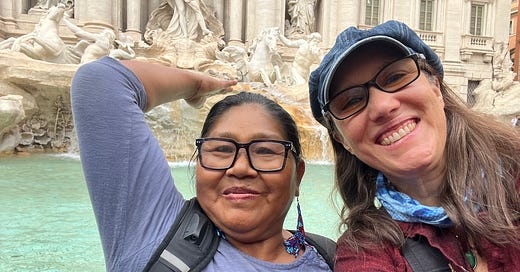



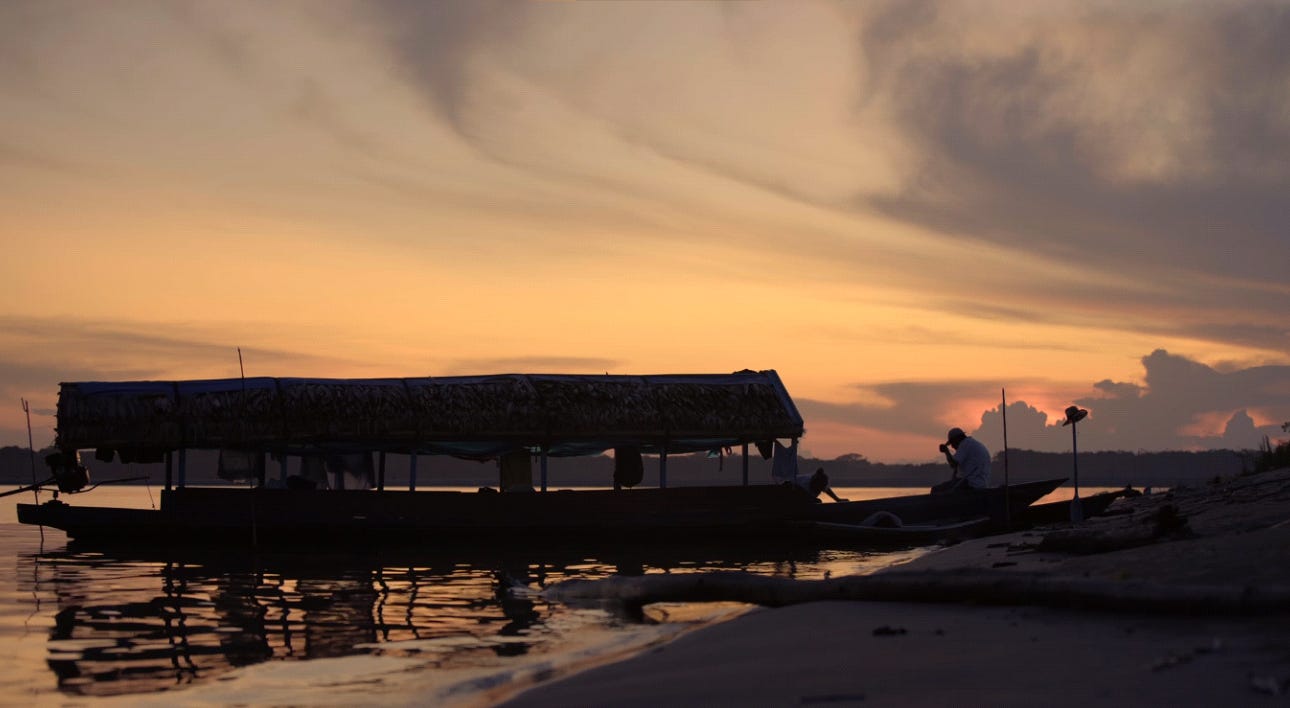
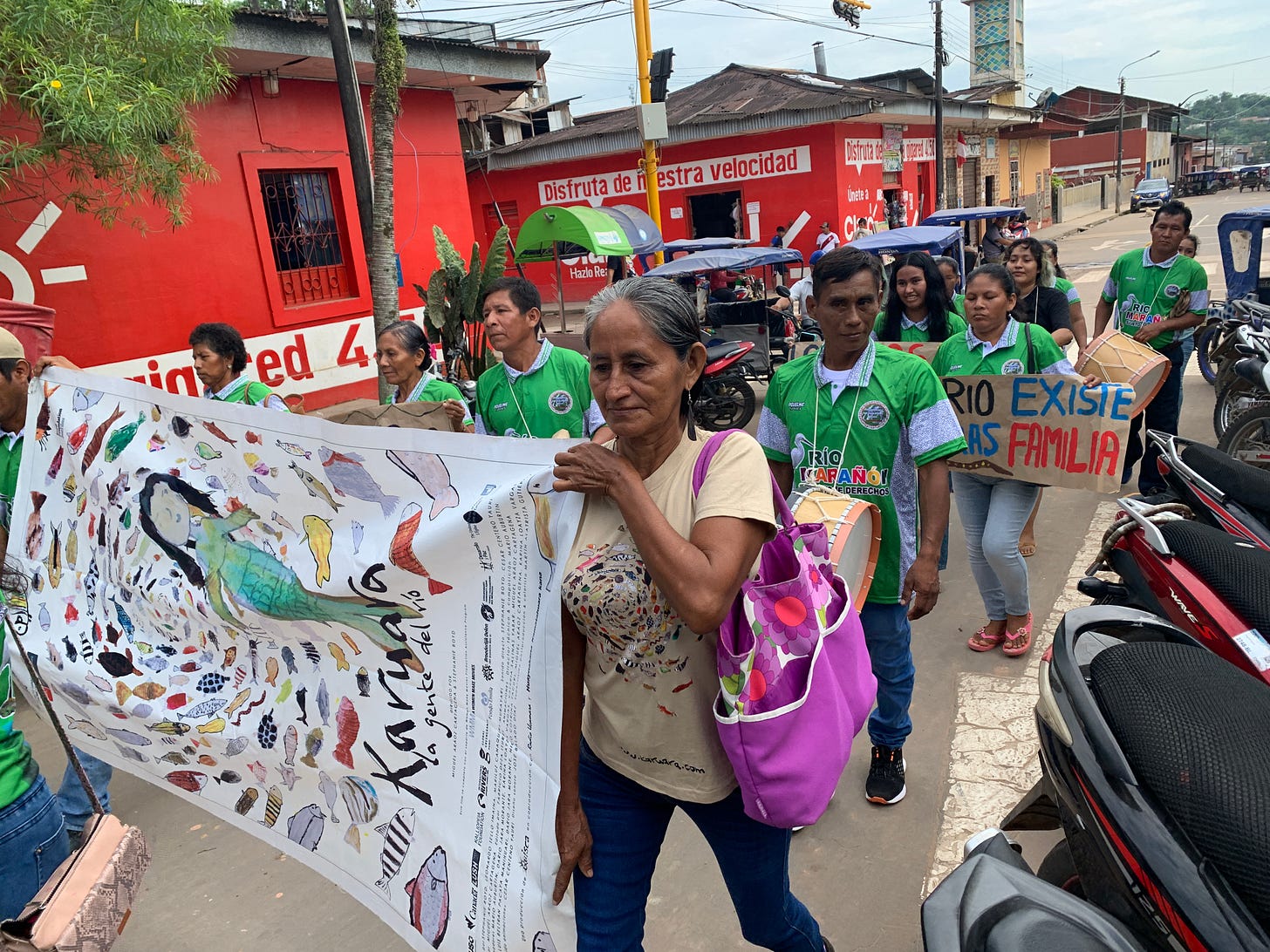
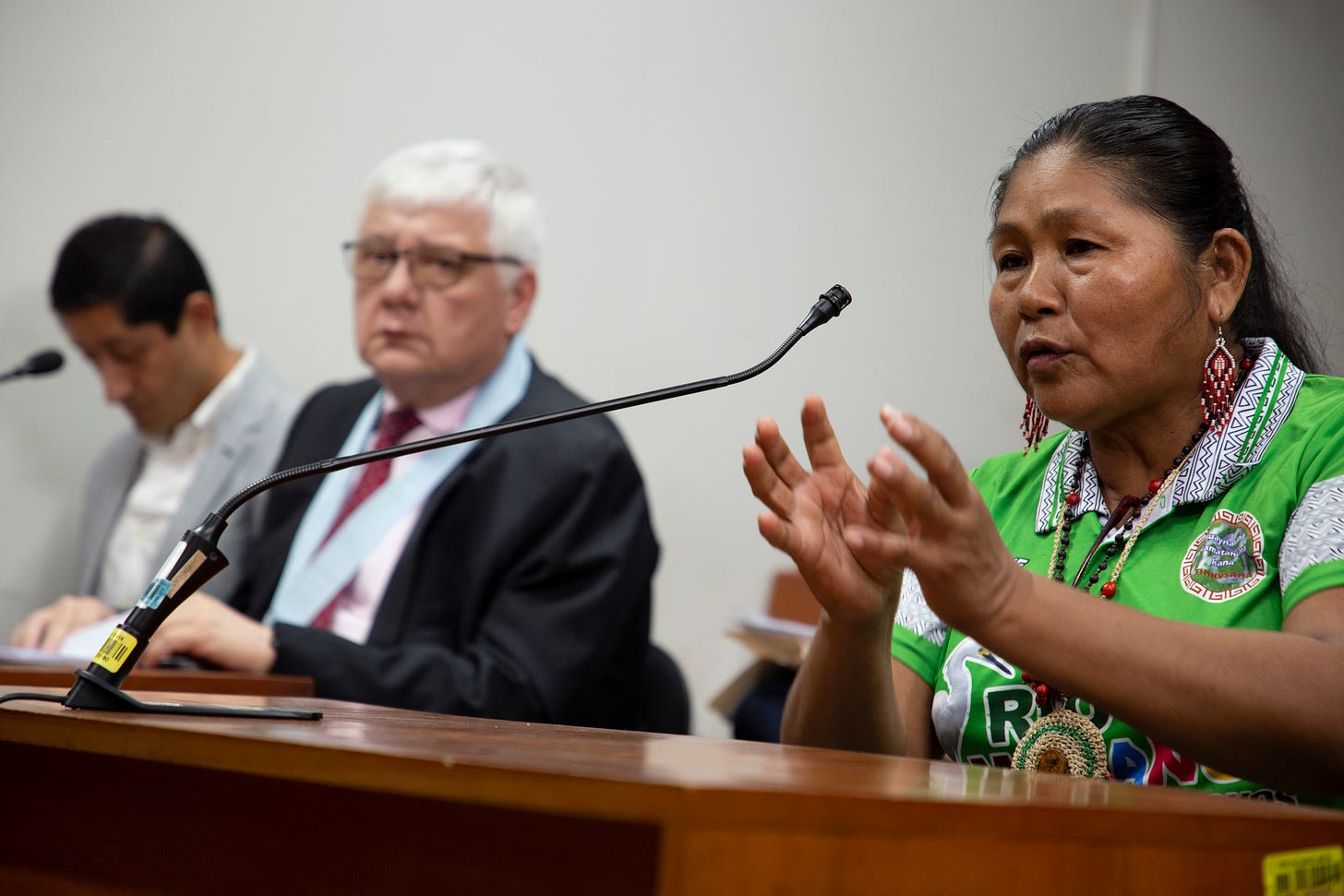
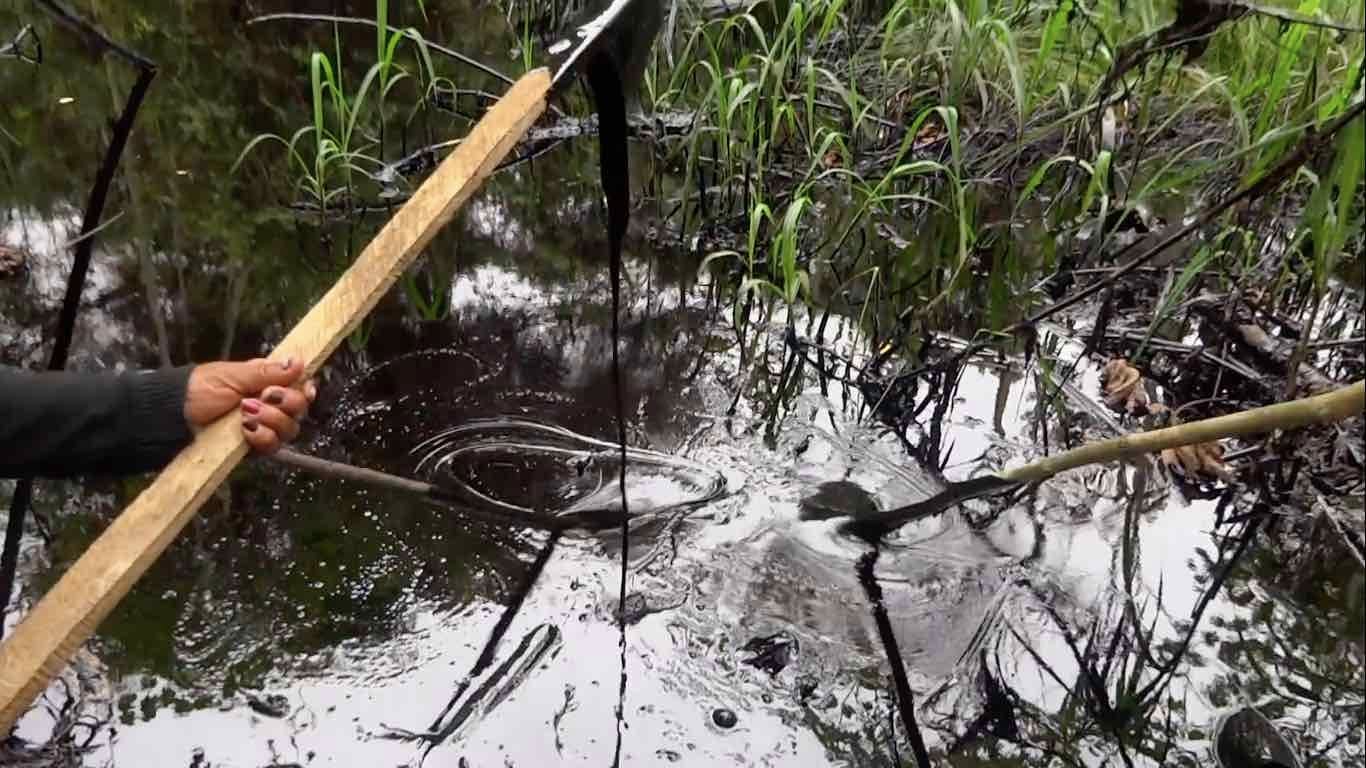
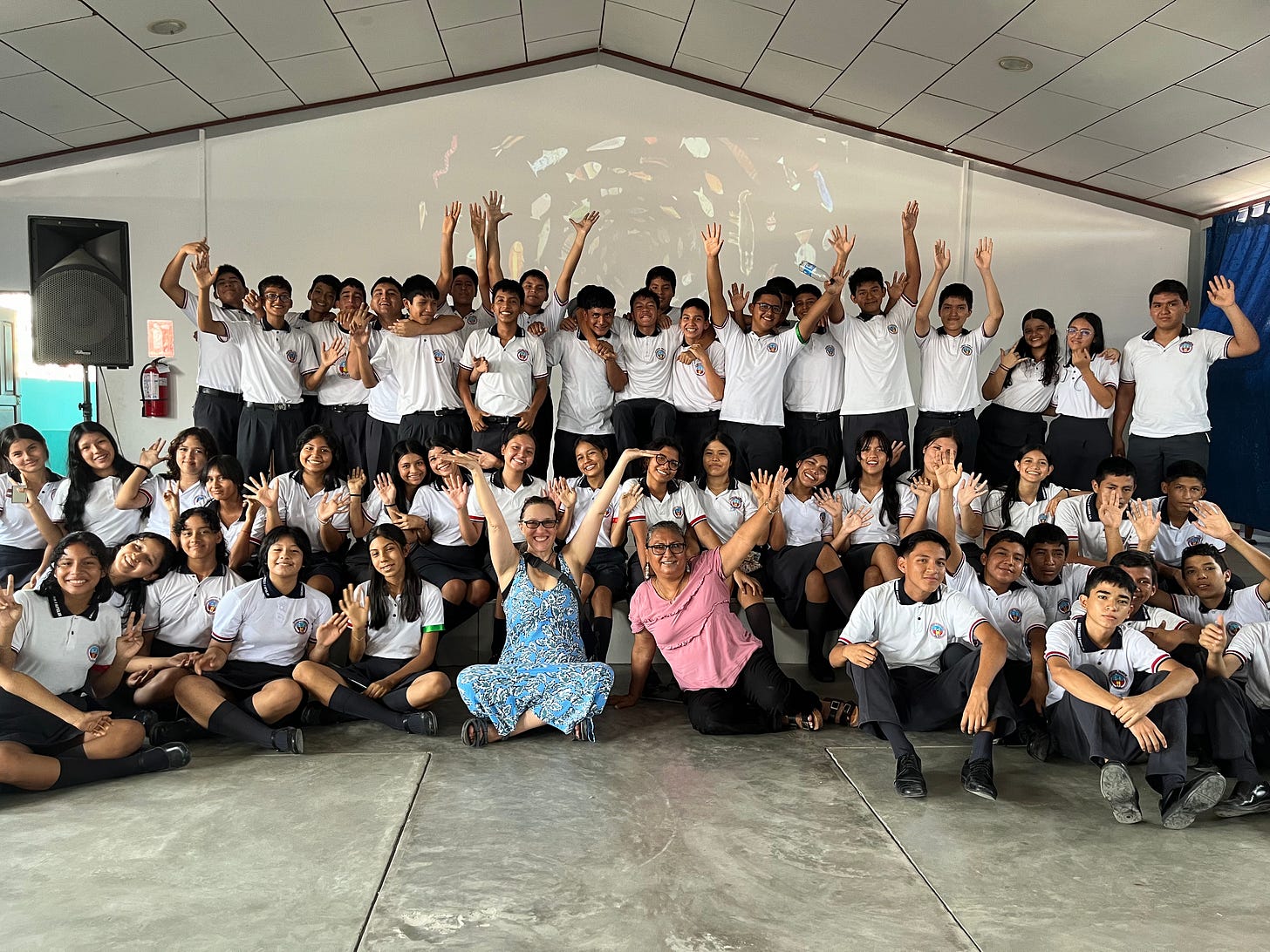
Stephanie Darling...
Love to you and Migeal Bro 🥰😍 Sure will share it to my family and Friends..
Vanakkam 🙏
Love from India
Kokila Elavarasan
Thanks Mitch! Looking forward to seeing you and Doris in June. Let me know if Doris would like to contact the Escuela Ikuari in Nauta (they’re Kukama elders and language instructors. They also have a weekly radio program on Ucamara). Hopefully we’ll do some US university screenings in the fall of 2025. Looking forward to coordinating.